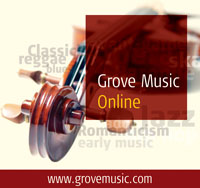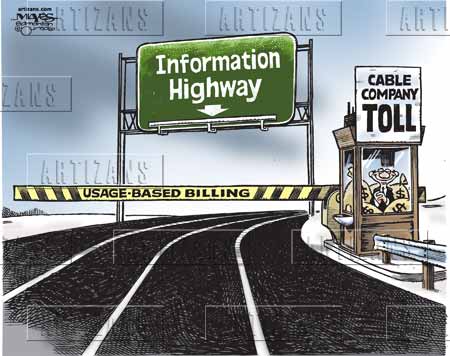Up early poking around in the Hope College online access to Groves Music Dictionary. I have been using this research tool for years and years. In the past, I routinely photocopied articles and the bibliography section at the end of them for further research. Groves was considered the first place to begin when trying to learn in deatil about Gregorian Chant, biographical details of a composer, you name it.
One of the reasons I wanted to move to a small town with a college in 1987 was continued access to the print edition of the New New Groves Dictionary of Music. Any small liberal arts music department would have a copy. Sure enough, Hope College did and does.

When Groves went online I became very excited because of the possibility of these bibliographies being kept up to date. This indeed is the case. But access is restrict to those who can pay an exorbitant subscription rate or could get access through their institution. I just checked and it costs $295 a year for an individual online subscription to what is now Oxford Music Online which includes not only the Groves but the The Oxford Companion to Music, The Oxford Dictionary of Music and the Encyclopedia of Popular Music. Needless to say this cost is prohibitive to many many people who would use this.
But probably most of them (like me at this point) can get access through the college or university they work at.
Due to often not being connected with a college or university since graduating in 1987 (pre internet boom years much less online subscription), I’m not that experienced at online research. However judging from this morning it doesn’t seem too difficult.
I was excited to see each entry of the bibliography on Charles Ives had a link.

Unfortunately all this link does is open a window with links to Hope College’s A-Z list of Journals and their catalog. So it’s not site specific to the resource. But still with a few clicks you can find out if the article you seek is available online or if the college has the book listed. I have started a list of books I want to grab Monday. Also pulled down an article on Ives full text, “Bad Resolutions or Good? Ives’s Piano Takeoffs” by Michael J. Alexander, Tempo, no.158 (1986), 8–14 (link to a first page citation… blah, notice that non-subscribers can get access to this ONE article for the reasonable price of $34. You’ve got to be kidding me!)

This all brings me around to thinking about the tiering that has already happened in access to information and is happening even as I write. I have believed all my academic life in the need for people to have access to ideas. When I was in grad school, the profs would assign reading that had limited access (one copy available at the library). I would routinely make photocopies of this primary material for the entire small class. Eventually the department wrote a letter prohibiting me from using the copy machine. Fuck learning. I remember well the ex-grad student who guarded the machine. I’m sort of proud of this.

Likewise, I feel that people who are interested in understanding their field should somehow have reasonable access to the material. Often this only means connecting to a local library as a visiting scholar. But if you are like me and have very unconventional interests in your area (plus in 1987 Hope College was even more calcified than it is now and not easy to approach if you happen to not be a clean cut white Christian), this is not as easy as it sounds.

I have recently purchased online subscriptions to my local paper and the New York Times. I think of this like pledging to NPR. I want to support the institutions I need access to. But when the cost of these becomes so exorbitant, I begin to wonder about the tiering of our society. Check this article out: AT&T Imposing 150GB Data Cap for DSL Customers Starting May 2? – PC Magazine
This morning I was listening to Media Minutes March 18th broadcast on my MP3 player. They quoted people who said their was no reason for this cap, that the idea that increased congestion is causing any kind of a need for this charge is unfounded (link to article about this on Wired). The “haves and the haves-not” is not only a disparate economic situation in the USA and other countries, it is also a restriction of ideas and innovation. Sheesh.
*************************************************************


*************************************************************
How Slavery Really Ended in America – NYTimes.com
Bookmarked to read.
*************************************************************
In Egypt’s Democracy, Room for Islam – NYTimes.com
Some interesting observations from Egypt’s current Grand Mufti [The title of Grand Mufti refers to the highest official of religious law in a Sunni Muslim country. The Grand Mufti issues legal opinions and edicts, fatw?, on interpretations of Islamic law for private clients or to assist judges in deciding cases. … link to source]
*********************************************************************
Malcolm X Biographer Dies on Eve of a Revealing Work – NYTimes.com
Manning Marable, 60, Historian and Social Critic – NYTimes.com
Excerpt – Malcolm X – By Manning Marable – NYTimes.com
I have followed Malcolm X since before he was killed. These are three related links about the untimely death of an author and research just days before his magnum opus was to be published. I am planning to wait a few months until some of the people who purchase this 600 page work are seeking to sell it used online. Than I plan to buy and read it. Heh.
*********************************************************************
What I Learned at School – NYTimes.com
The Teachers Who Shaped Our Lives – NYTimes.com
A well written essay about the effect of good teachers and follow up letters.
*********************************************************************

http://will.illinois.edu/mediamatters/show/march-20th-2011/
This is a link to the MP3 of a recent broadcast which includes the Media Minutes mentioned above. I am about half way through listening. Anya Schiffrin discusses economic media coverage in a fascinating and enlightened way. Recommended.
*********************************************************************